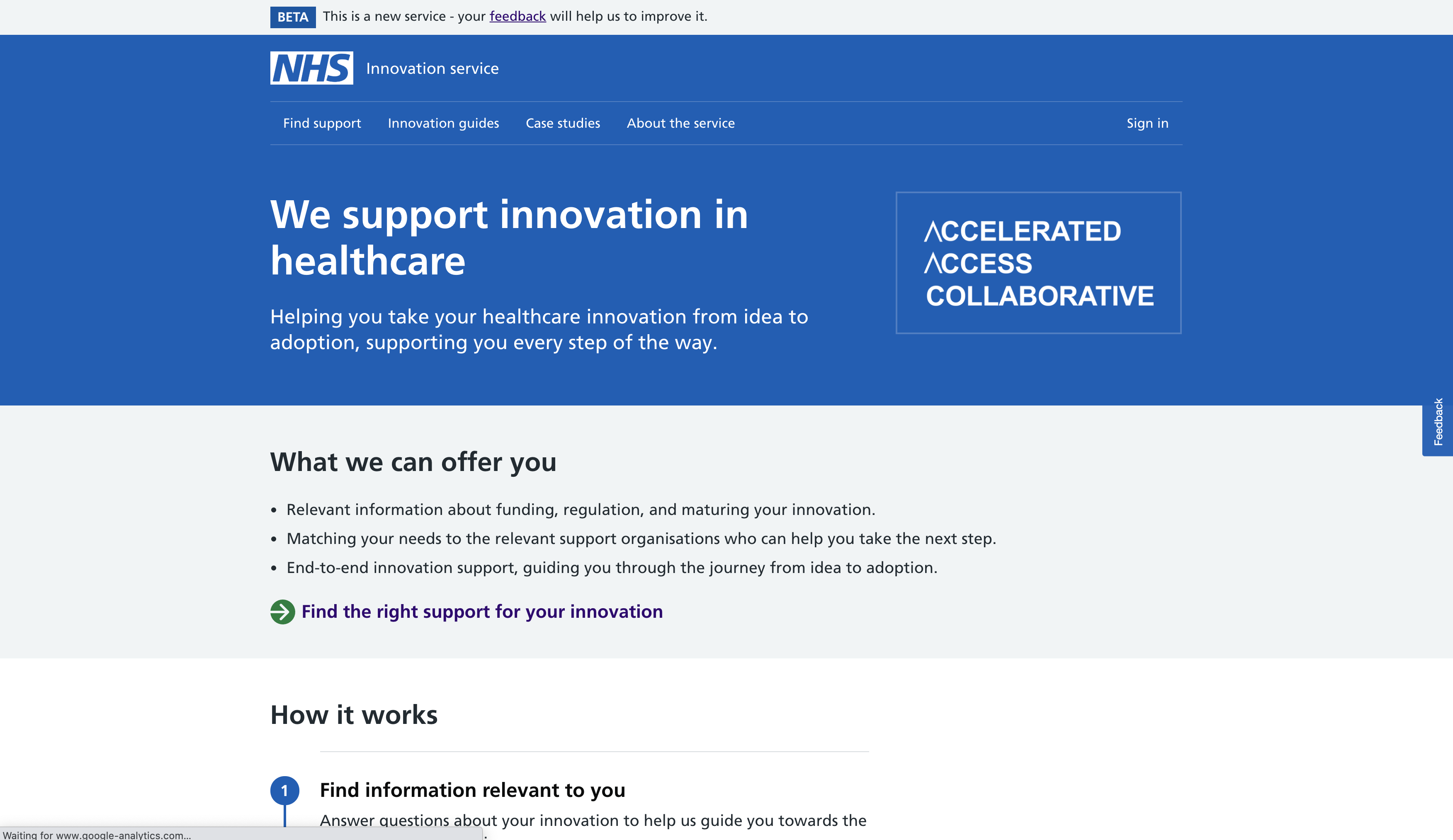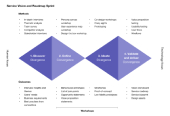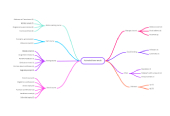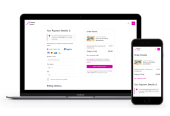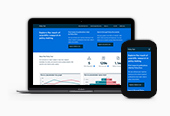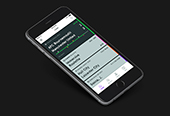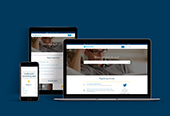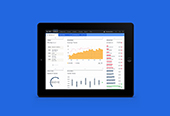Ford Telematics Drive: creating a service around the needs of Fleet Drivers
Project background
In the UK, daily walkaround checks are required by the Driver and Vehicle Standards Agency (DVSA) in order to ensure that fleet vehicles are safe and roadworthy. An MVP of the Ford Telematics Drive app (FT Drive) was launched to help Fleet Drivers carry the required daily walkaround checks and report any vehicle issues to their Fleet Managers.
UX and service design team: Pedro Falcao, Panos Markidis, Ibolya Olah; Product Ownership: Adam Stanford; Delivery Management: James Mankin
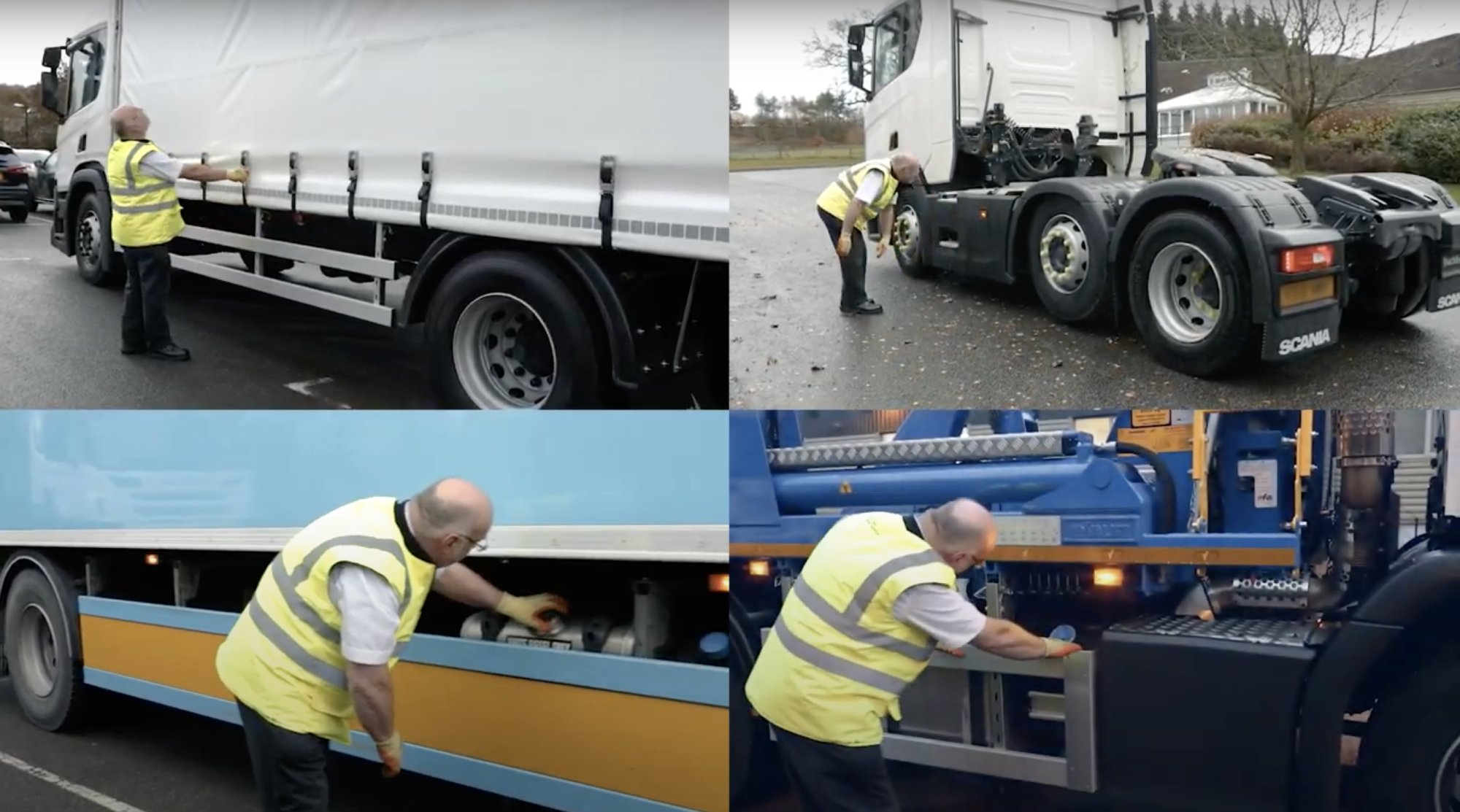

Challenge: creating a service around the needs of fleet drivers
Ford identified an opportunity to extend the purpose of the app and provide a service around the needs of Fleet Drivers. To that end, the UX and service design team was asked to develop a vision for the future of the service and help to shape its short and long-term feature roadmap.
Process: involve the team in a Service Vision and Roadmap Sprint
- Phase 1 (Discover): UX research.
- Phase 2 (Define): workshops to identify the problem(s).
- Phase 3 (Ideate): workshops to generate solution(s).
- Phase 4 (Validate and deliver): testing the solution(s) devised.
Collaboration was key in this process: actively involving different stakeholders in all the phases of the design process facilitates communication, creates a common understanding, and generates innovative and impactful ideas.
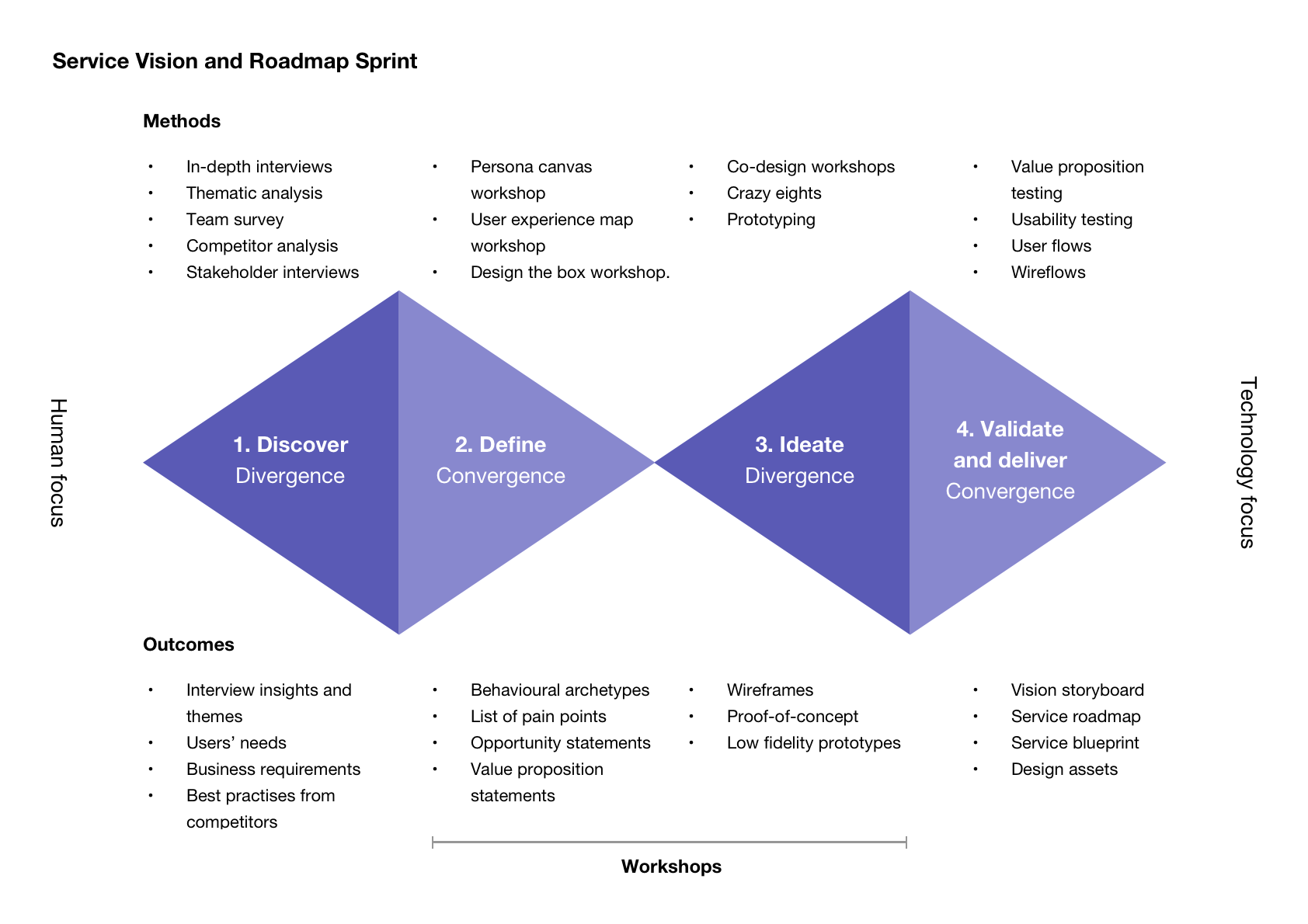

Phase 1 – Discover
We were not able to conduct contextual inquiries and observe drivers while they work in their own environment due to the pandemic. The alternative was to conduct remote in-depth interviews with Fleet Drivers over the course of two weeks. High-level research objectives included:
- Gain a better understanding of the drivers’ day-to-day.
- Understand how drivers perform key tasks currently provided by FT Drive.
- Understand how FT Drive can further help drivers performing their job.
- Identify behavioural user segments.
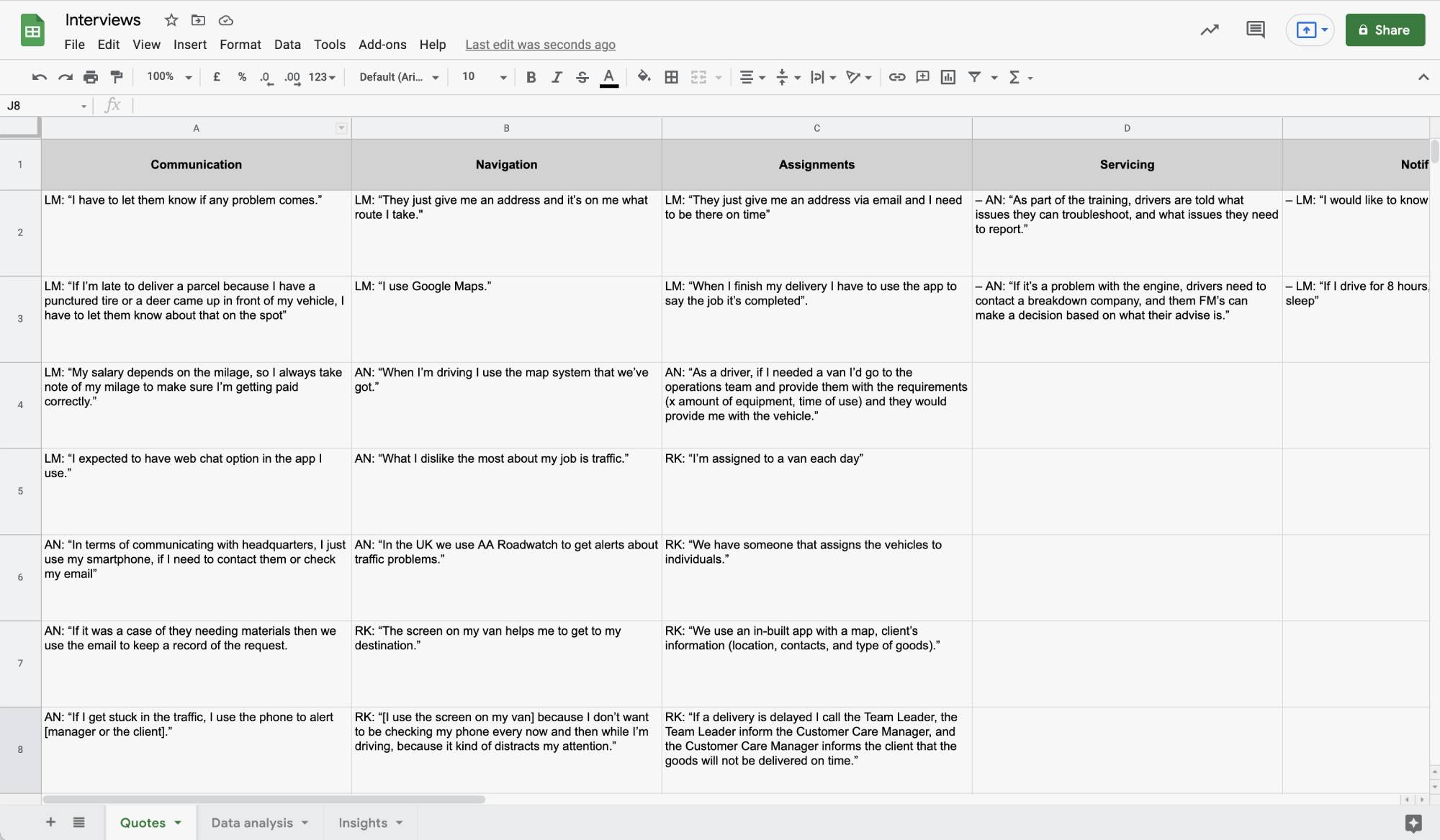

Phase 2 – Define (workshops)
The workshops were carried over the course of two days to provide mental separation between Exploring the Now and Imagining the Future.
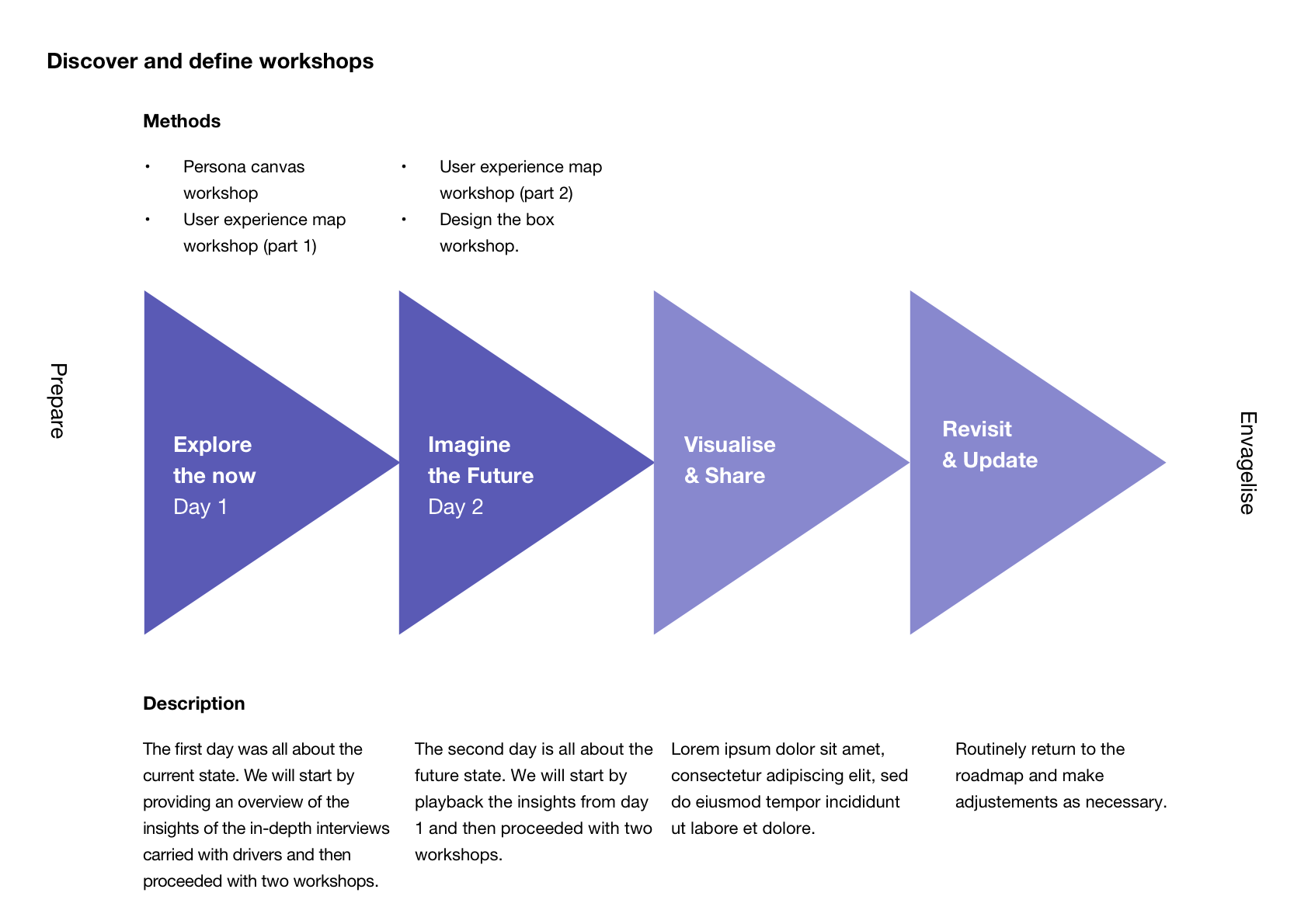

Workshop day 1: explore the now
The first day was all about the current state. We started by providing an overview of the insights of the in-depth interviews carried with the Fleet Drivers and then proceeded with two workshops:
- Persona canvas workshop.
- Customer experience mapping workshop (part 1).
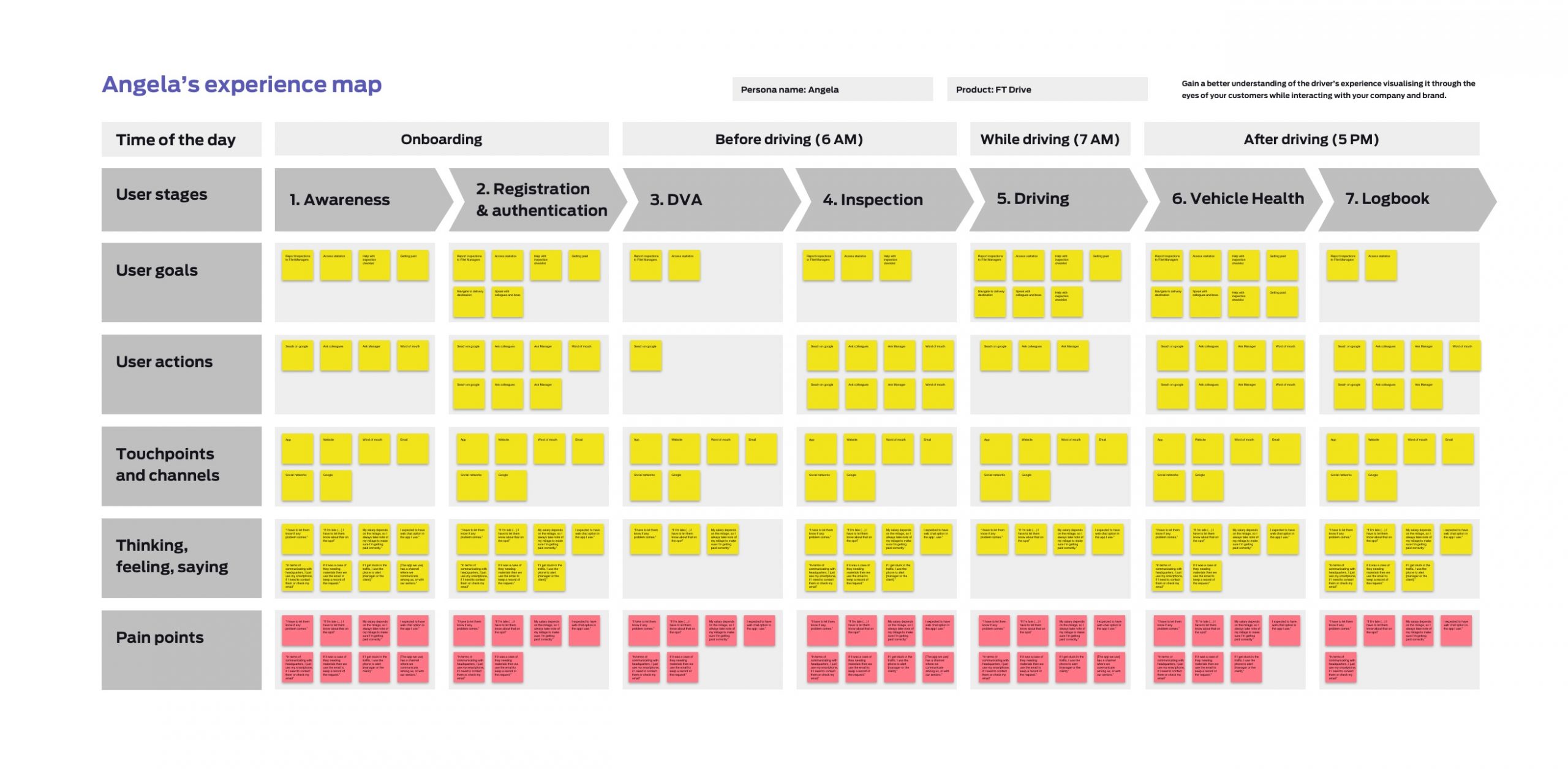

Workshop day 2: Imagine the future
The second day is all about the future state. We started to playback the insights from day 1 and then proceeded with two workshops:
- Customer experience mapping workshop (part 2).
- Design the box workshop.
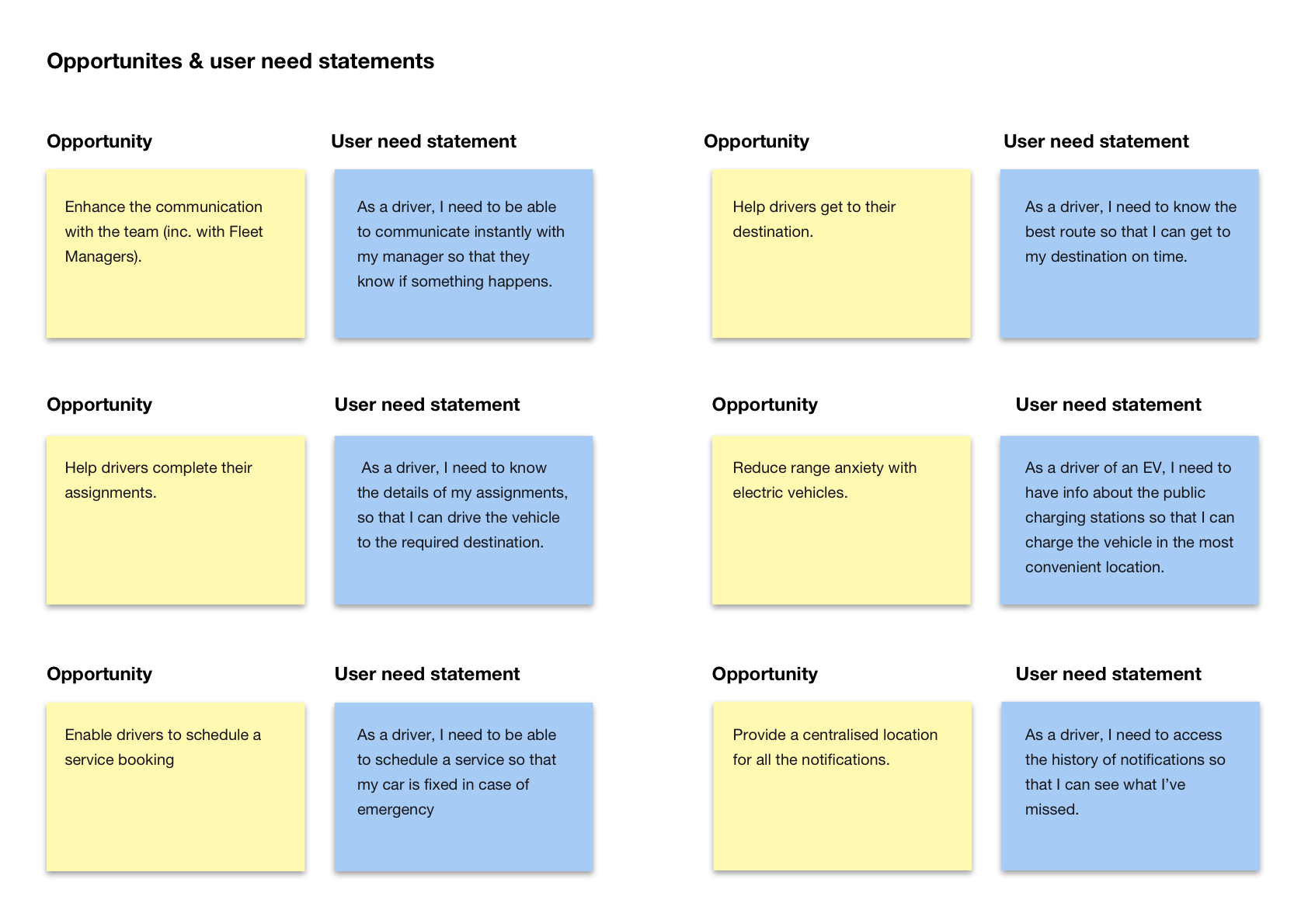

Phase 3 – Ideate
We have used the opportunities identified in Phase 2 to carry co-design workshops with multiple stakeholders (engineers, PM’s, researchers, and designers). These exercises were useful to brainstorm new features and design improvements.
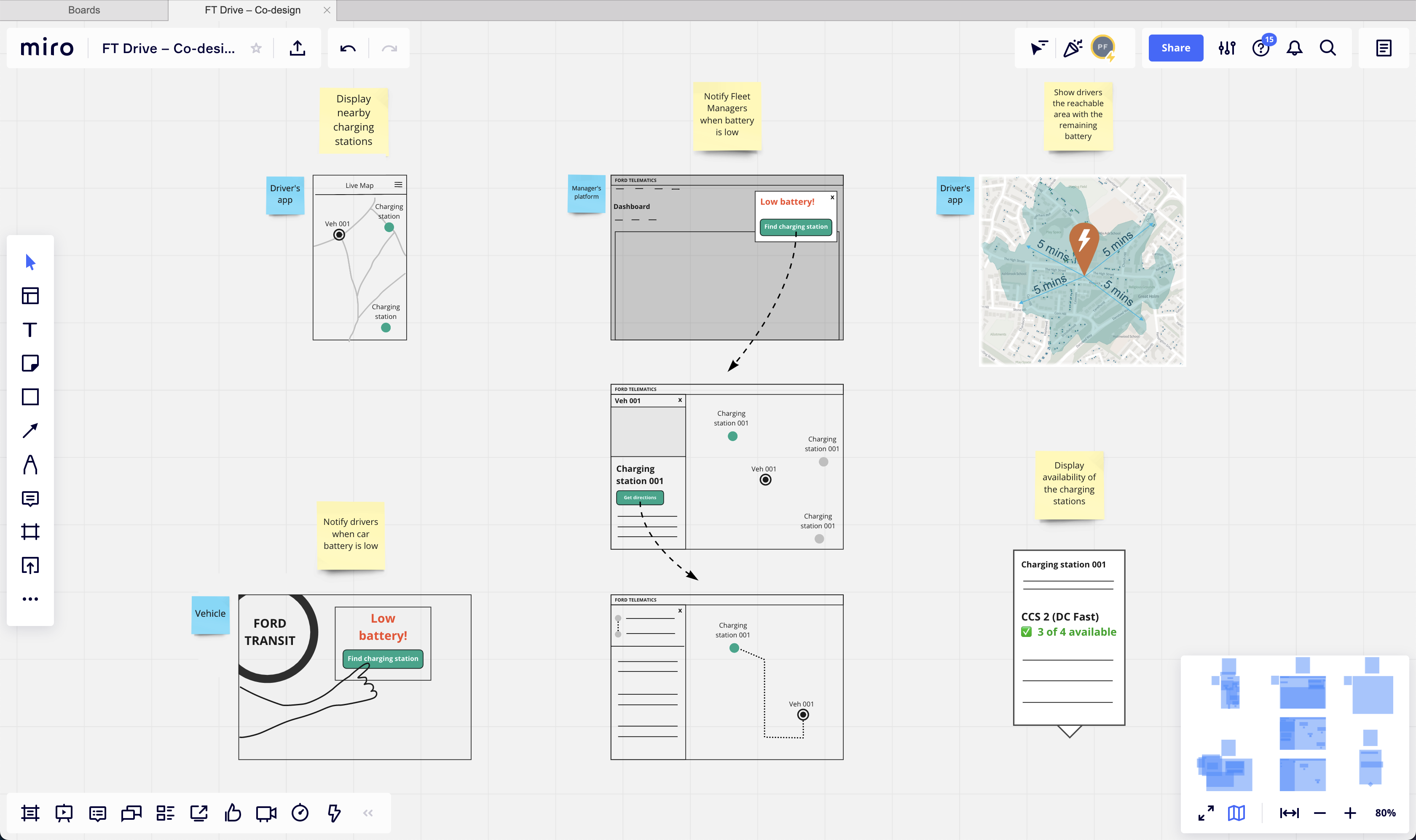

Phase 4 – Delivery
4.1. A tangible vision for the service
We wanted to create a clear, contextual, and tangible vision for the service. Something visual and inspirational that would help alignment among stakeholders and avoid confusion about what the future looks like.
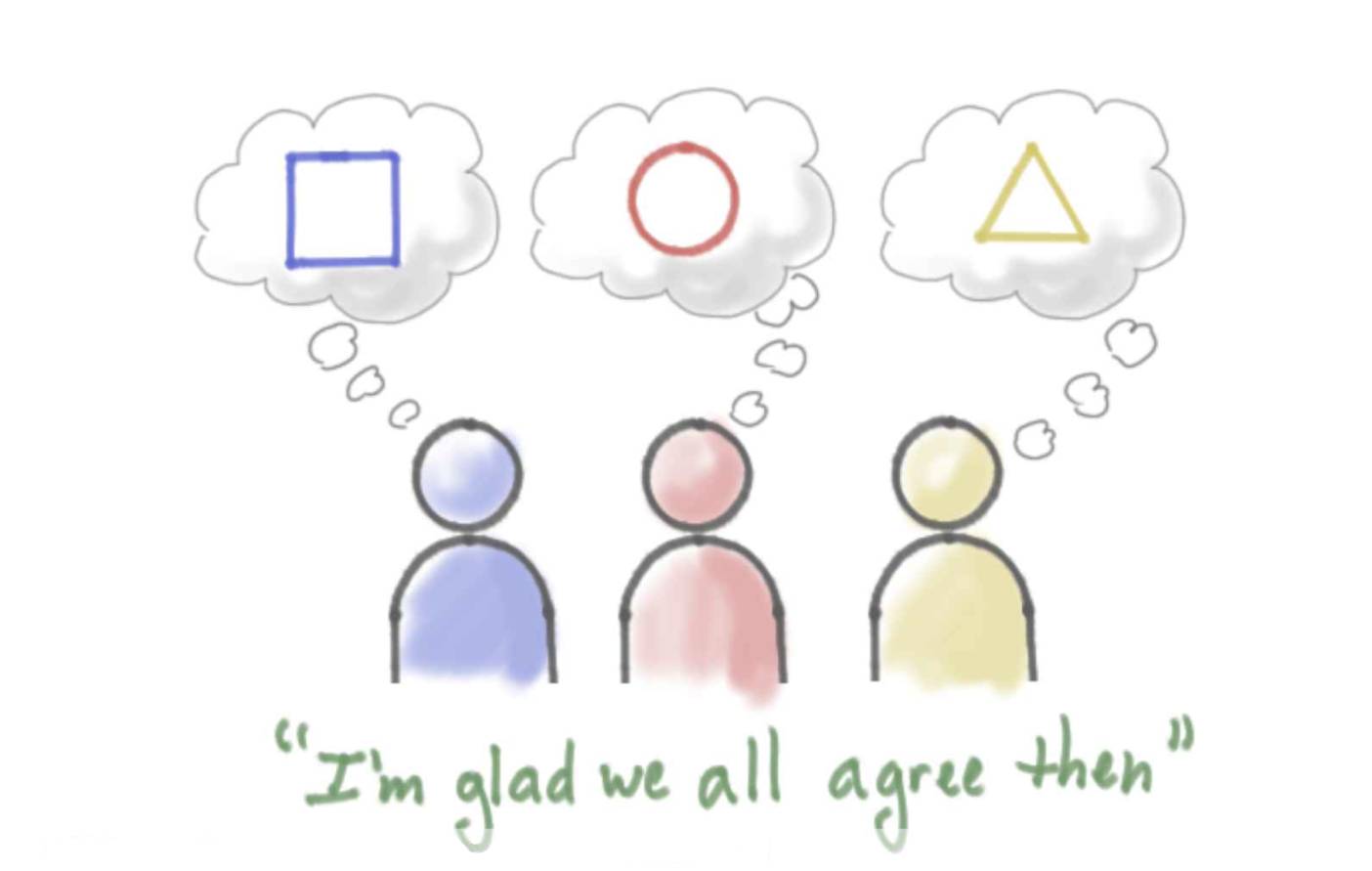

Image source: Jeff Patton’s User Story Mapping
4.2. Vision storyboard
In order to inspire and create alignment among stakeholders, we have decided to create a vision storyboard. This is only the first iteration and the plan is to revisit it frequently.
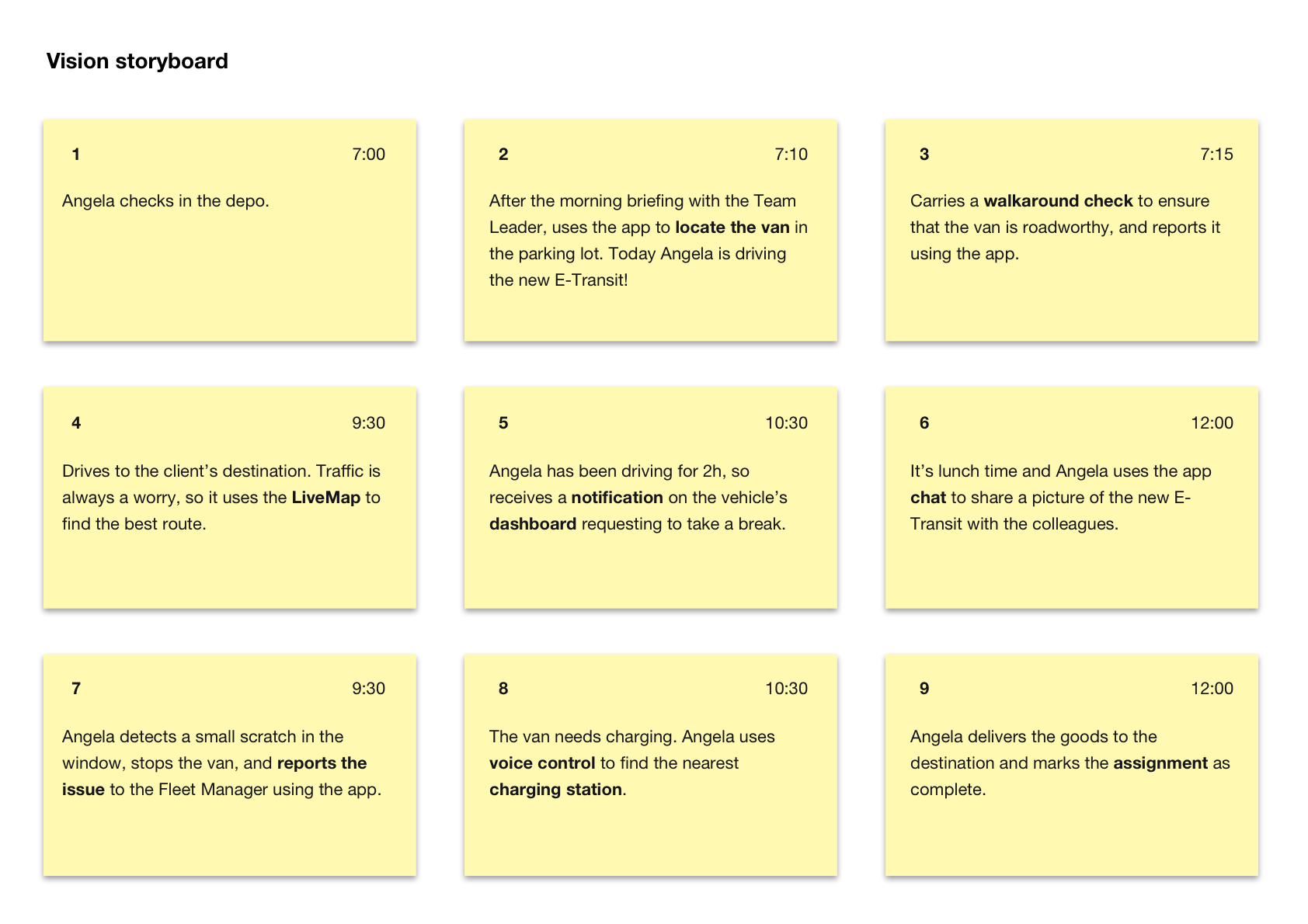

4.3. Revisited value proposition
The Vision sprint allowed us to revisit the value proposition statement to FT Drive – A multichannel service built to keep fleet drivers informed, safe, and in control.
4.4. A roadmap based on UX research
The Vision sprint allowed us also to identify a few areas for improvement and create a roadmap of features based on user research:
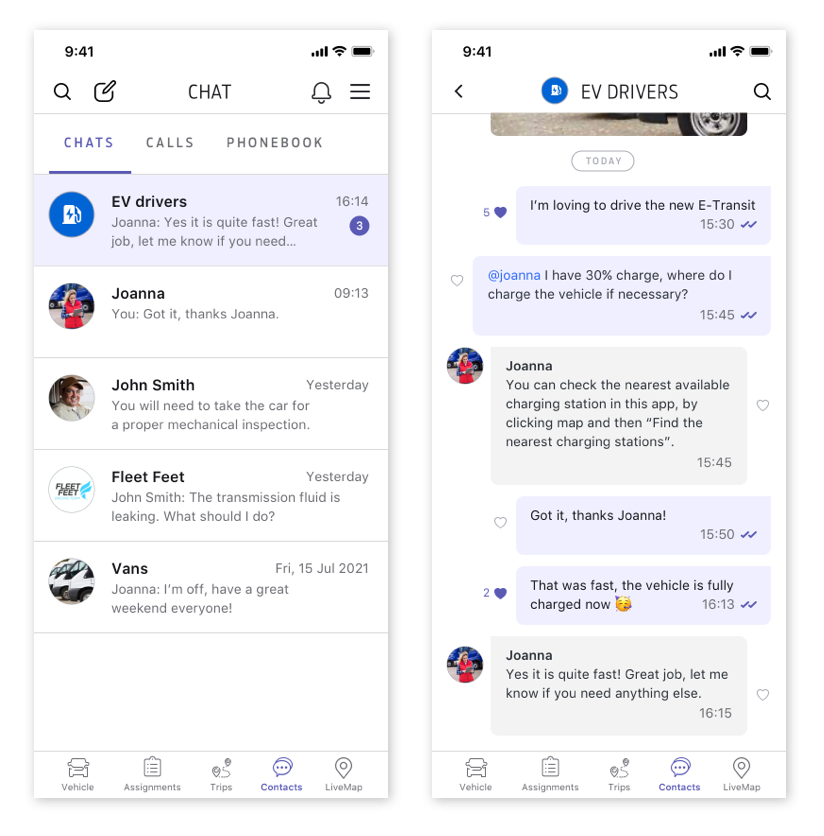

Enhance the communication with Fleet Managers
As a driver, I need to be able to communicate instantly with my manager so that they know if something happens.
Help drivers get to their destination
As a driver, I need to know the best route so that I can get to my destination on time.
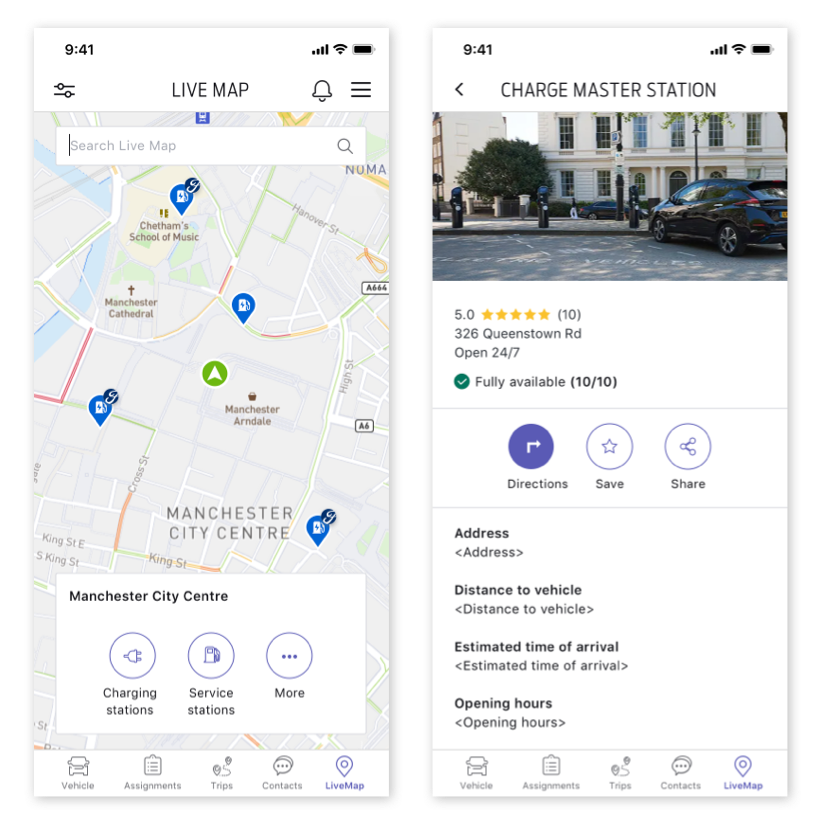



Enable drivers to schedule a service booking
As a driver, I need to be able to schedule a service booking so that my car is fixed in case of an emergency.
Provide a centralized location for all the notifications
As a driver, I need to access the history of notifications so that I can see what I’ve missed.
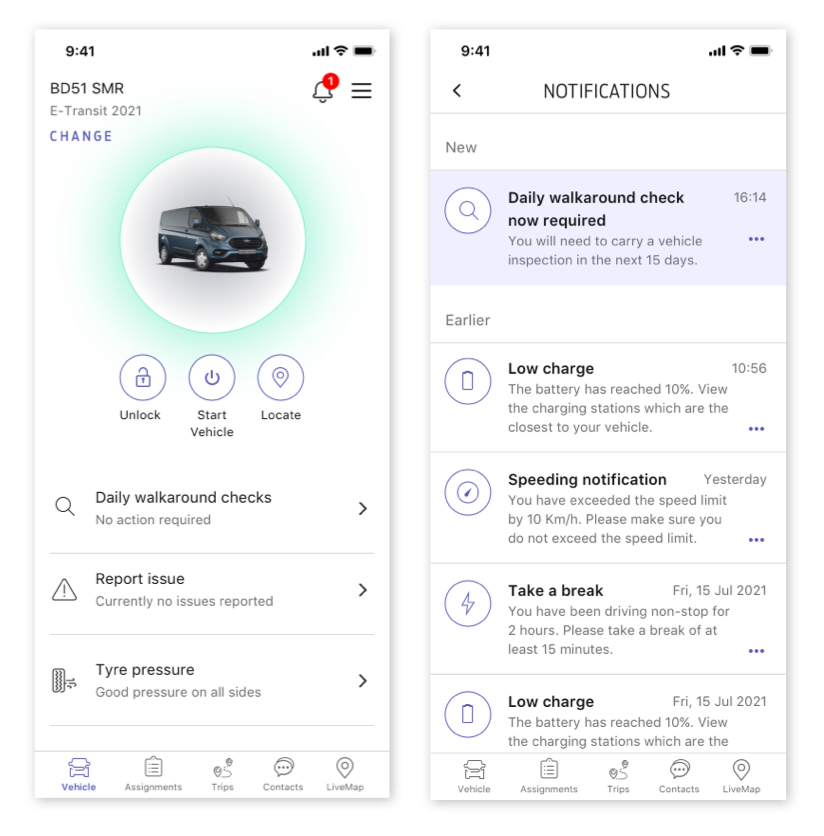



Reduce range anxiety with electric vehicles
As a driver of an electric vehicle, I need to have information about the EV charging stations so that I can charge the vehicle in the most convenient location.
App as a key and remote control to the vehicle
As a driver, I need to use my smartphone to lock, locate and control the temperature of my vehicle, so I can keep control of the vehicle remotely.


